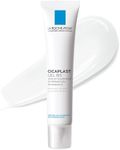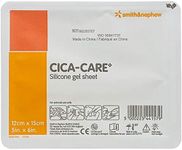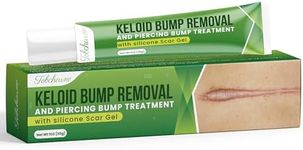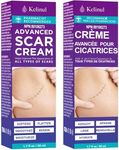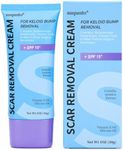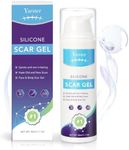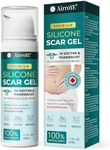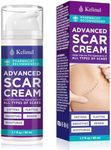Buying Guide for the Best Scar Cream After Surgery
Choosing the right scar cream after surgery can make a big difference in how your scar heals and fades over time. The goal is to support your skin’s natural healing process, reduce redness, and minimize the appearance of scars. Since everyone’s skin is different, it’s important to understand the key features of scar creams so you can select one that matches your needs and skin type. Always check with your healthcare provider before starting any new product, especially after surgery.IngredientsIngredients are the active components in a scar cream that help with healing and scar reduction. Common ingredients include silicone, vitamin E, onion extract, and natural oils. Silicone is widely recommended by doctors for its proven ability to flatten and fade scars, while other ingredients like vitamin E and onion extract are popular for their soothing and moisturizing properties. When choosing a scar cream, look for ingredients that are known to be effective and safe for your skin type. If you have sensitive skin or allergies, opt for creams with fewer additives and fragrances.
Texture and AbsorptionTexture refers to how the cream feels on your skin—whether it’s thick, light, greasy, or quickly absorbed. A cream that absorbs well is less likely to stain clothes and is more comfortable for daily use. Thicker creams may provide more moisture, which can be helpful for very dry or healing skin, while lighter gels or serums are often preferred for oily or sensitive skin. Consider your personal comfort and how often you’ll need to apply the cream when deciding on the right texture.
Application FrequencyApplication frequency tells you how often you need to use the cream for best results. Some creams are designed for once-daily use, while others may require application two or three times a day. If you have a busy lifestyle, a product that needs less frequent application might be easier to stick with. On the other hand, if you’re committed to a routine, a more frequent application could offer faster results. Always follow the instructions for the specific product you choose.
Suitability for Skin TypeSuitability for skin type means how well the cream works with your particular skin—whether it’s sensitive, oily, dry, or combination. Some scar creams are formulated specifically for sensitive skin and are free from harsh chemicals or fragrances, while others are more general. If you know your skin reacts easily, look for hypoallergenic or dermatologist-tested options. For oily or acne-prone skin, non-comedogenic creams that won’t clog pores are a good choice.
Intended Use (Old vs. New Scars)Some scar creams are designed to work best on new scars, while others are formulated for older, more established scars. New scars are usually more responsive to treatment, so creams for new scars may focus on soothing and reducing redness. Products for older scars often contain ingredients aimed at breaking down tough scar tissue and improving skin texture. Consider how long you’ve had your scar when choosing a product, and select one that matches your situation for the best results.
Safety and SensitivitySafety and sensitivity refer to how gentle the cream is on healing skin and whether it’s likely to cause irritation. After surgery, your skin can be especially delicate, so it’s important to choose a product that’s safe for use on fresh scars and doesn’t contain harsh chemicals or strong fragrances. If you have a history of allergies or sensitive skin, patch test the cream on a small area first or consult your doctor before use.

